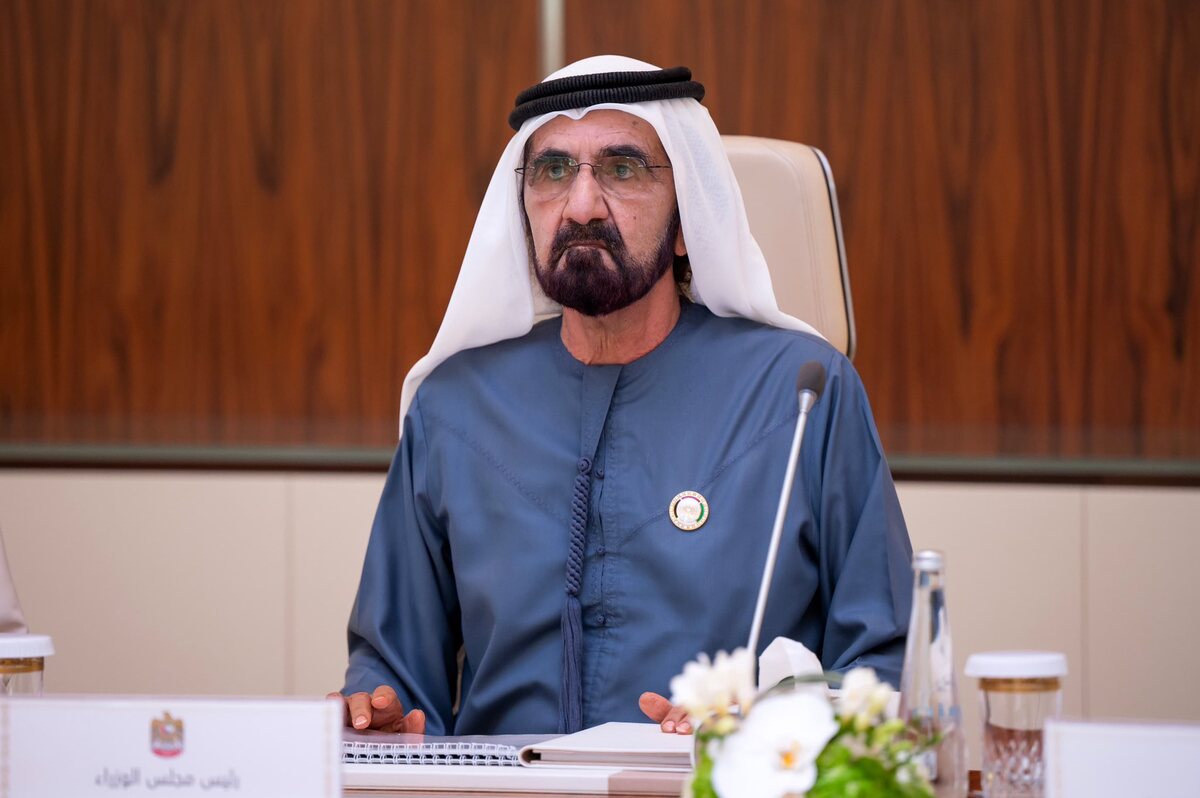His Highness Sheikh Mohammed bin Rashid Al Maktoum, Vice President, Prime Minister of the UAE and Ruler of Dubai, chaired today the UAE Cabinet meeting held at Qasr Al Watan, Abu Dhabi. During the meeting, the UAE Cabinet approved the UAE Strategy for Islamic Finance and Halal Industry.
In a post on social media platform X, Sheikh Mohammed explained that the strategy aims to develop the UAE’s Islamic financial industry, lead global Islamic finance activities, and raise the level of exports of halal products worldwide.
“Our goal is to increase the assets of our Islamic banks from AED986 billion to AED2.56 trillion within six years, and to increase Islamic sukuk issuances listed in the UAE to more than AED660 billion ($180 billion) by 2031,” he added.
Sheikh Mohammed also noted that the UAE Cabinet decided to establish a committee headed by the Governor of the Central Bank to implement the strategy.
Cabinet reviews tourism targets
In addition to approving the new Islamic finance strategy, the UAE Cabinet reviewed the performance of the Emirates Tourism Council and the positive results of the tourism sector, driven by initiatives like the “World’s Coolest Winter” campaign and the National Tourism Charter.
The year 2024 tourism results revealed that 30 million guests checked in to the country’s hotels by the end of the year, scoring an increase of 9.5 percent, compared to the previous year. Room numbers grew by 3 percent to 215,000, and hotel revenues rose by 4 percent to AED37 billion. Tourism, including travel and hospitality, contributed AED220 billion (11.7 percent) to the 2023 national economy.
“We have the necessary infrastructure, and our goal is to reach a contribution of AED450 billion over the next six years,” added Sheikh Mohammed.
UAE updates national biosecurity framework
Furthermore, the UAE Cabinet approved an updated, second edition of the National Biosecurity Framework (2023-2032), focusing on 3 main aspects: sustainably managing biological risks, strengthening prevention and response capabilities, and promoting biosecurity research and innovation.
Key updates include developing a biological emergency management system, implementing relevant international agreements and bolstering national expertise.
Reinforcing the UAE’s commitment to sustainable development and its National Policy on Biofuels, the UAE Cabinet also reviewed several biofuel projects.
2025 Hajj season preparations
As part of the UAE’s commitment to providing excellent services to the community members, the UAE Cabinet reviewed preparations for the 2025 Hajj season, led by the UAE Hajj affairs department, which operates under the General Authority of Islamic Affairs and Endowments and Zakat, and in partnership with local government entities.
To boost federal employee productivity and efficiency, the UAE Cabinet also approved the updated performance management system for Federal Government employees (Enjazaty). Focusing on strategic alignment, specialization, employees’ roles, and results, the system promotes a culture of high performance, continuous feedback and learning, while emphasizing flexibility, transparency and a strong employer-employee relationship.
In legislative affairs, the Cabinet further approved the issuance of legislative decisions concerning visiting doctors at federal health facilities, regulating space activities, penalties related to nuclear regulation and public benefit organizations, as well as amendments to Cabinet’s resolution on marriage grants.
The Cabinet also reviewed the Ministry of Human Resources and Emiratisation’s (MOHRE) AI implementation results. These included an AI-driven labor market simulation model and an online platform that facilitates analysis to support decision-making and AI-driven solutions to current challenges. Automated solutions mimicking human actions in digital systems were also deployed.

SME sector in focus
In addition, the UAE Cabinet reviewed the latest updates on the national Small and Medium Enterprises (SMEs) sector. The UAE ranked first globally for the fourth consecutive year according to the 2024-2025 report of the International Business Leadership Observatory, seventh globally at the 2024 Global Competitiveness Index, and 18th globally among the 2024 top 100 Emerging Ecosystems Ranking. The country witnessed a growth of more than 160% in the number of SMEs licenses issued between 2020 and 2024.
“Our goal is to continue supporting and expanding this sector and providing the best environment for launching and supporting small and emerging companies, which constitute a major backbone of the national economy,” Sheikh Mohammed added.
UAE Gender Balance Council restructuring approved
The agenda of the meeting featured the Cabinet’s approval of the restructuring of the UAE Gender Balance Council, chaired by H.H. Sheikha Manal bint Mohammed bin Rashid Al Maktoum, and including Mona Ghanem Al Marri, Vice Chairperson, and other members. The Cabinet also approved the issuance of a resolution restructuring the UAE Gender Balance Council, enabling it to carry out its duties and achieve its objectives in coordination with relevant federal and local entities and the private sector.
The meeting also witnessed the Cabinet’s approval to restructuring of the UAE Council for Environmental and Municipal Work, chaired by Her Excellency Amna bint Abdullah Al Dahak Al Shamsi, Minister of Climate Change and Environment, and to the formation of a special committee for chemical precursors, chaired by the Emirates Drug Establishment.
Read: UAE’s ADNOC raises $1.5 billion through debut sukuk
Cabinet ratifies, approves key agreements
The UAE Cabinet also ratified four international agreements, focusing on investment promotion and protection, with the Democratic Republic of Congo, Uzbekistan, Somalia, and the Philippines.
The Cabinet also approved numerous MoUs and agreements, including a comprehensive economic partnership with Azerbaijan and an agreement between the Arab Youth Center and Jordan’s Crown Prince Foundation. Further approved MoUs addressed mutual recognition of competency certificates with Fiji, energy cooperation with Mongolia and Uzbekistan, and visa exemption with Sri Lanka.
In international affairs, the Cabinet approved hosting eight world-class events, including the Intergovernmental Oceanographic Commission (IOC) regional committee meeting for the Central Indian Ocean; World Customs Organization Technology Conference and Exhibition; and the International Operational Risk Working Group Conference.








